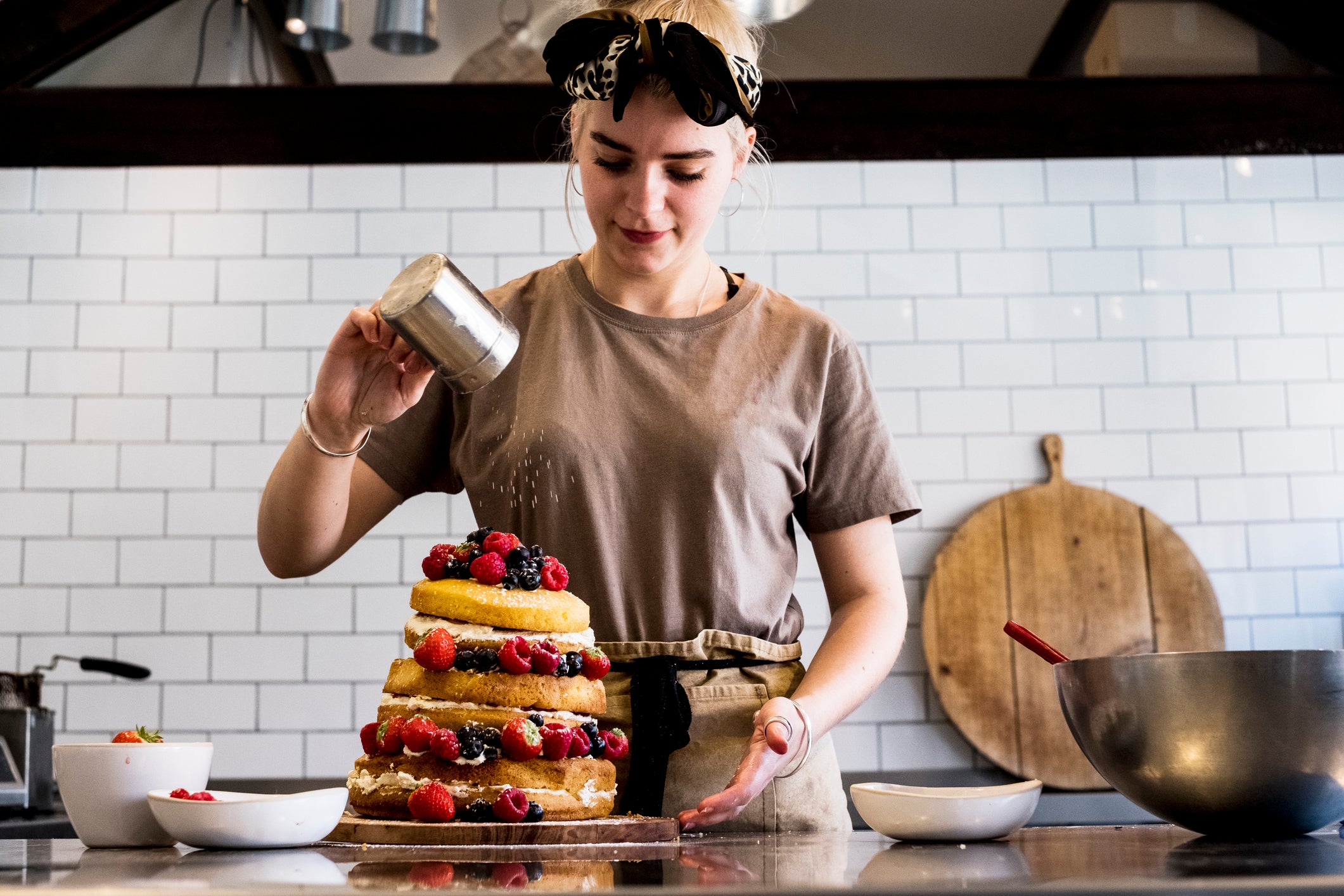How Do I... Bake Without Eggs

(Photo: Mint Images / Getty)
How many times have you gotten excited about a recipe while flipping through a cookbook or watching a tasty-looking TikTok cooking video, only to notice eggs are part of the ingredient list? For vegans, those with egg allergies, and others, that can be a big bummer. And if you’ve tried to recreate that recipe simply by omitting the eggs, you’ve probably learned a tough lesson – and wished for natural vegan egg substitutes for baking.
“Egg yolks provide the fat, and offer a silky consistency and richness to a recipe,” says Chris Disney, director of operations for Picazzo’s Healthy Italian Kitchen, a health-centric restaurant concept with six locations around Phoenix, Arizona. “Conversely, egg whites are the protein, which provides structure, absorbs air and firms things up.”
Thankfully, there are a handful of tried-and-true ways to replace eggs by using other ingredients that still offer similar baking properties. You might need to do a little experimenting to find which substitution works best in each type of dish, but here are a handful of the options chefs swear by:
Applesauce
When developing a vegan pizza crust for Picazzo’s, Disney turned to applesauce. “We tried a powdered egg replacement mix, but didn’t get the results we wanted,” he says. “We also tried chia seeds, but still weren’t quite there. [Applesauce] adds some fiber, acid, and sweetness, and better retains moisture when we prepare the dough ahead of time, but bake it later.”
Psyllium husks
When combined with water or other liquids, psyllium husks become gelatinous and create a smooth, fat-mimicking texture — and that’s why Ananda Johnson, executive chef at Dancing Spirit Ranch, turns to them for her farm-to-table menus. In addition to serving as a vegan egg substitute, Johnson says the husks offer a healthful bonus. “Psyllium is a powerful prebiotic,” she says. “Prebiotics act as support for probiotics, the healthy bacteria that live in the human gut-environment or microbiome. In other words, psyllium feeds the good bacteria in our intestines.” To make a psyllium egg, combine 1 tsp psyllium with 3 Tbsp water.
Ground flax meal
Johnson’s other favorite egg replacement is ground flax meal, because it binds the other ingredients in a recipe similar to how eggs would. “Flax seed is well known for its high omega-3 fats that help reduce inflammation,” she says. “It also contains high-quality protein and is loaded with nutrients. Both psyllium and flax seed are high in fiber.” To make a flax egg, combine 1 Tbsp ground flaxseed meal with 3 Tbsp of water. Mix together, and let sit for 5-10 minutes, until mix is thick and gelatinous. One flax “egg” equals one egg.
Aquafaba
“Aquafaba is the liquid from a can of chickpeas, and has a similar make-up to eggs,” says Natalie Noiman, baker and co-owner of Sugarloaf Lane Bakery in Chandler, Arizona. “So, three tablespoons of aquafaba can be used to substitute one egg in recipes like cookies, breads, cakes, as well as egg wash. You can also whisk aquafaba into a similar consistency as egg whites, to use as meringue or in a mousse. Use a tiny pinch of cream of tartar to help it firm up faster, and whip until it forms semi-firm peaks.”
Banana
Similar to the aforementioned applesauce, Noiman says mashed banana can add moisture and texture to breads and muffins. She recommends using a ¼ cup to substitute for one egg. Of course, banana will taste like, well, banana, while applesauce offers a more neutral flavor.